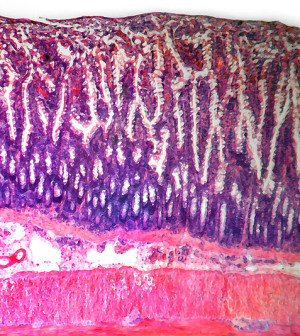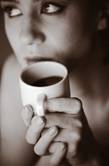- The Best Time of Day to Drink Bone Broth to Maximize Health Benefits
- 8 Ways to Increase Dopamine Naturally
- 7 Best Breads for Maintaining Stable Blood Sugar
- Gelatin vs. Collagen: Which is Best for Skin, Nails, and Joints?
- The Long-Term Effects of Daily Turmeric Supplements on Liver Health
- Could Your Grocery Store Meat Be Causing Recurring UTIs?
- Are You Making This Expensive Thermostat Error This Winter?
- Recognizing the Signs of Hypothyroidism
- 10 Strategies to Overcome Insomnia
- Could Artificial Sweeteners Be Aging the Brain Faster?
Study Links Coffee to Lower Liver Cancer Risk


Researchers say they’ve discovered yet another reason to love coffee: A new study suggests that people who drink at least a cup a day have a lower risk of liver cancer compared to those who only indulge occasionally.
The study was to be presented Wednesday at the annual meeting of the American Association of Cancer Researchers in San Diego. Research presented at meetings should be viewed as preliminary until published in a peer-reviewed medical journal.
When the study started in the 1990s, researchers asked nearly 180,000 adults of different racial and ethnic backgrounds about their coffee drinking and other lifestyle habits.
Study participants have now been tracked for as long as 18 years, and researchers have kept tabs on how many have developed hepatocellular carcinoma, the most common kind of liver cancer. So far, 498 study participants have been diagnosed.
People who said they drank one to three cups of coffee a day had a 29 percent reduced risk of liver cancer compared to those who drank six cups or less each week. And more was apparently better: People who regularly had more than four cups of coffee a day had a 42 percent reduced risk, according to the study.
To put that in perspective, one in 81 men and one in 196 women will get liver cancer over the course of their lives, according to the American Cancer Society. A 29 percent risk reduction lowers the odds of that diagnosis to one in 104 for men and one in 253 for women.
What’s more, those reductions held even after researchers accounted for other things known to increase a person’s risk for liver cancer such as age, obesity, smoking, drinking, sex and diabetes.
However, the study was only designed to show association, not to prove a cause-and-effect relationship. There may be something else common to coffee drinkers that also reduces cancer risk.
Still, it’s not the first study to uncover such a link.
A review published last year in the journal Clinical Gastroenterology and Hepatology, which combined the results of 16 different studies involving more than 3,200 patients, concluded that drinking more than three cups of coffee a day might cut the risk of liver cancer by as much as 50 percent.
One expert praised the most recent research.
“This is a really well-done study,” said Susan Gapstur, vice president of epidemiology for the American Cancer Society. “It adds to the growing body of evidence that coffee might be associated with a lower risk for a number of cancers.”
Beyond liver cancer, studies have suggested that coffee may be tied to reduced risk for head and neck cancers, colorectal cancers, prostate cancer, and bladder, endometrial, esophageal and pancreatic cancers.
What researchers don’t yet understand is how coffee may ward off cancer.
“That’s what everybody wants to know,” said study author V. Wendy Setiawan, an assistant professor in the department of preventive medicine at the USC Norris Comprehensive Cancer Center in Los Angeles.
Setiawan says coffee has close to 100 active compounds including antioxidants, polyphenols and caffeine. It’s also known to affect liver enzymes.
“At this time, I don’t think anybody has any idea what compound is protective,” she said.
More information
Visit the American Liver Foundation for more on liver cancer.
Source: HealthDay
Copyright © 2026 HealthDay. All rights reserved.










